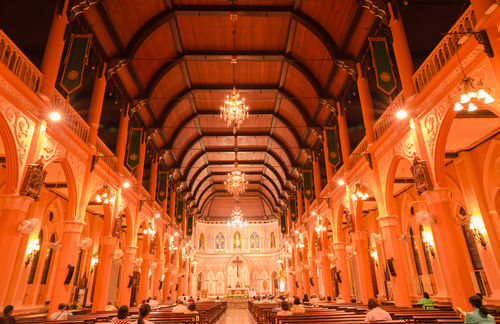Now that people call me Father, I’m beginning to appreciate the trouble I made for my dad when I was young. I’m not talking about any spectacular rebellion. But, like a lot of young guys, I bristled at the idea that anyone should have authority over me.
It seemed crazy that my life should be so hemmed in by the decisions of a man who didn’t even understand my generation’s music, or gadgets, or clothing styles.
Wasn’t I a better judge of what was good for me and what was dangerous?
Well, here I am, all grown up, and I find I must sometimes tell people what’s good for them — and warn them away from what’s dangerous.
And occasionally they don’t want to listen.
As Americans, we always want to feel like we’re in charge of our destiny. We make our own choices. We like to think that authority went out in 1776 with King George III.
But it’s not just an American thing. In fourth century North Africa, St. Augustine said he stole pears from his neighbor’s tree, just for the thrill of breaking the rules.
We don’t want to obey. We admire humility in others, but we’d prefer not to have our own sovereign spirit broken. Even some of the angels were that way. Satan decided he’d rather rule in hell than serve in heaven — and God let him have his wish. When demons came to tempt the desert fathers, they looked like grotesque humans without kneecaps. They had no knees because they would never consent to kneel before God.
We’re all afraid that obedience will make us look foolish. We’re afraid we’ll look like slaves if we submit ourselves to authority.
But those fears are unfounded. We only look foolish — we only look like slaves — when we submit ourselves to authority that’s not legitimate. And people do this all the time.
I’m often amazed that people will refuse to obey the Church, but willingly enslave themselves to fashion, or money, or an obsessive relationship. Then who looks foolish?
If we will not submit ourselves to rightful authority, reality may eventually break us in. If we run enough red lights, we’ll likely get pulled over. If we keep disregarding our doctor’s orders, we’ll probably find ourselves on a gurney in the emergency room.
Sin has a similar way of bringing us down. Its effects have a way of showing us eventually that Mom and Dad — or even the priest at your parish! — was right after all.
We save ourselves a lot of grief if we make up our minds to be like the humble people we admire. We save ourselves a lot of trouble if we make the sovereign decision to obey. It’s more radical than rebellion.
And if we want to be Christian, it’s a non-negotiable part of the deal. Obedience is the work that proves our faith. St. Paul often gets credit as the great Apostle of Faith, but what he really championed was the “obedience of faith” (Romans 1:5 and 16:26).
As we mature, we come to appreciate real authority. Mark Twain famously said: “When I was a boy of 14, my father was so ignorant I could hardly stand to have the old man around. But when I got to be 21, I was astonished at how much the old man had learned in seven years.”
If we apply ourselves to studying the Catholic faith, we too might be astonished at how much our Church knows. If we read history and the lives of the saints, we might see the wisdom of the “rules” and laws of Catholicism that have developed over the centuries. Just because we don’t understand the Church’s guidance, that doesn’t mean the guidance is deficient. We may need to look deeper for the reasons. Or God may be asking us to trust.
If you’re going to trust anyone with your obedience, the Catholic Church is your best bet. The Church’s authority has proven more reliable and durable than any other institution. In fact, you can’t name another institution that has been around since the time of the Roman Empire.
My dad hasn’t been around quite that long. But his authority, too, has grown pretty impressive to me in recent years. Funny how that works.

